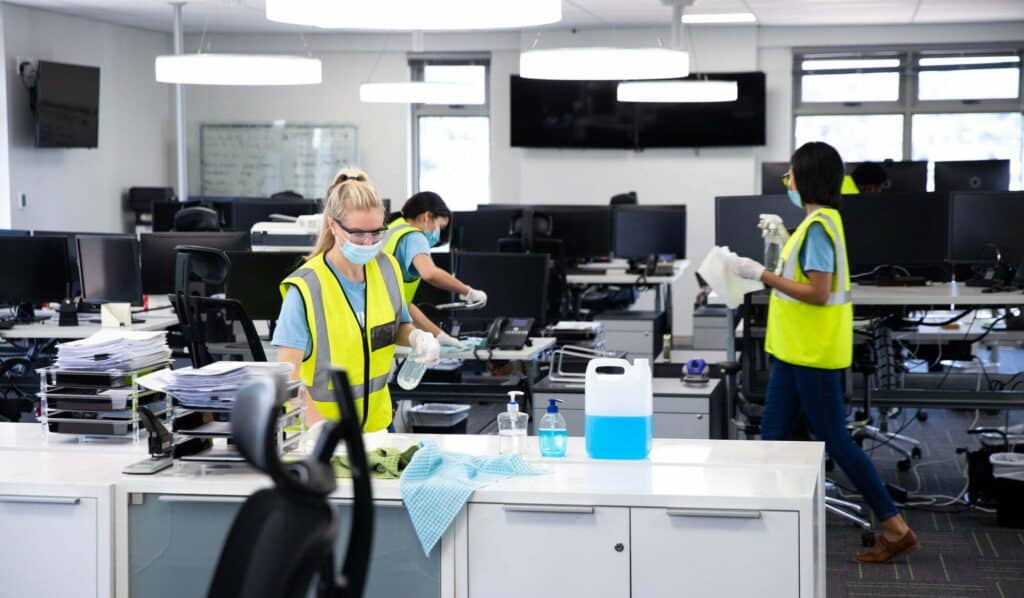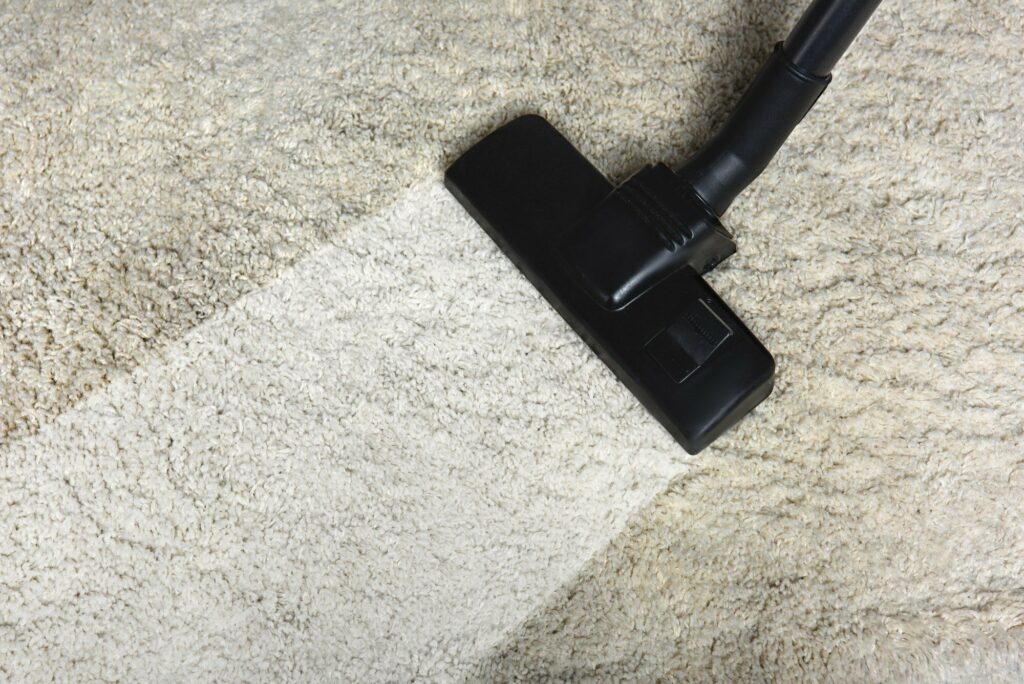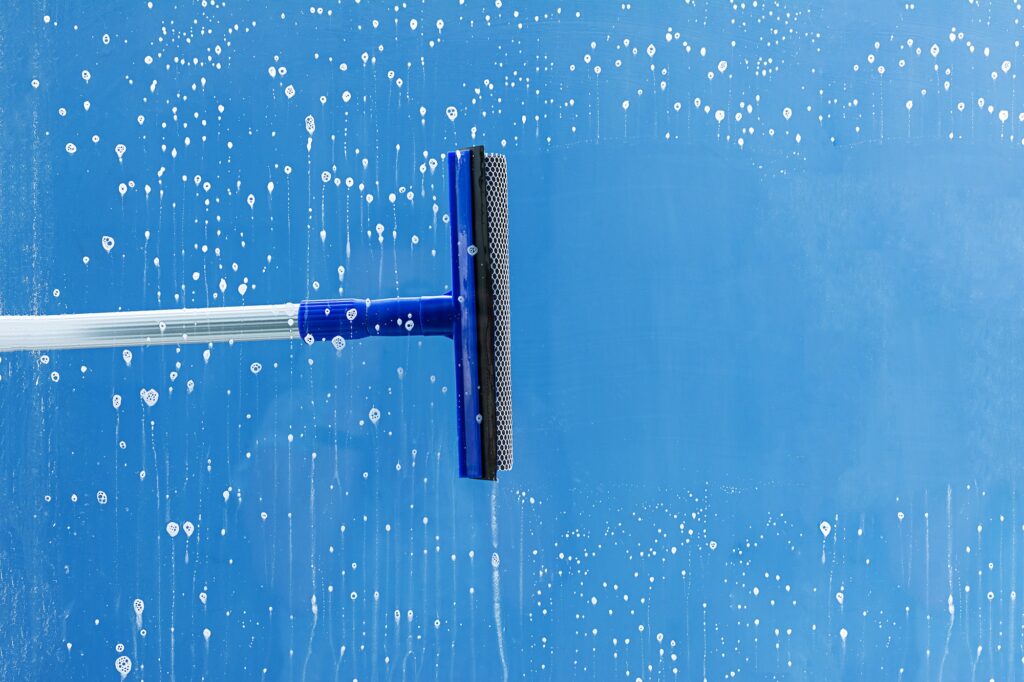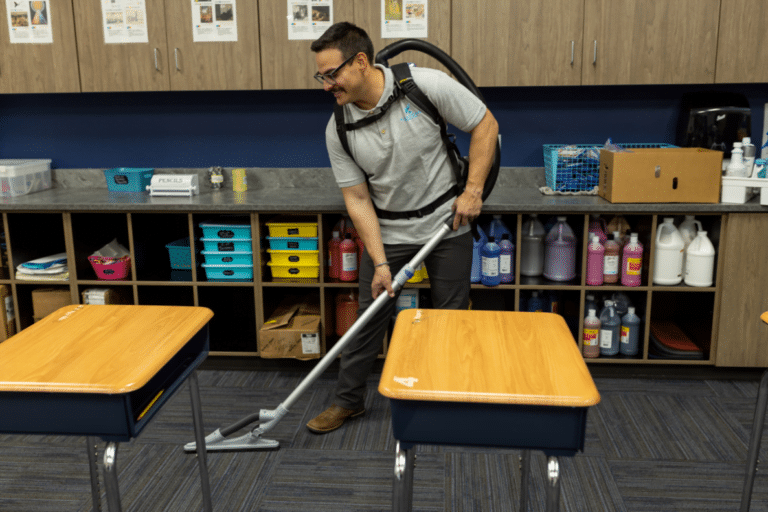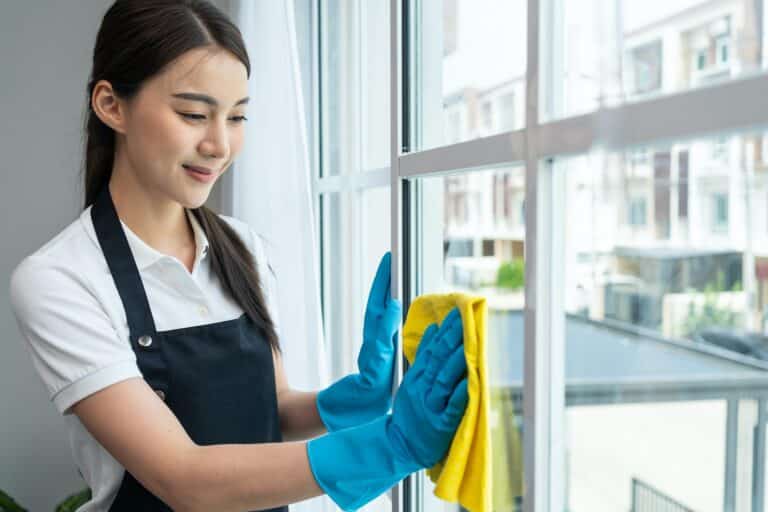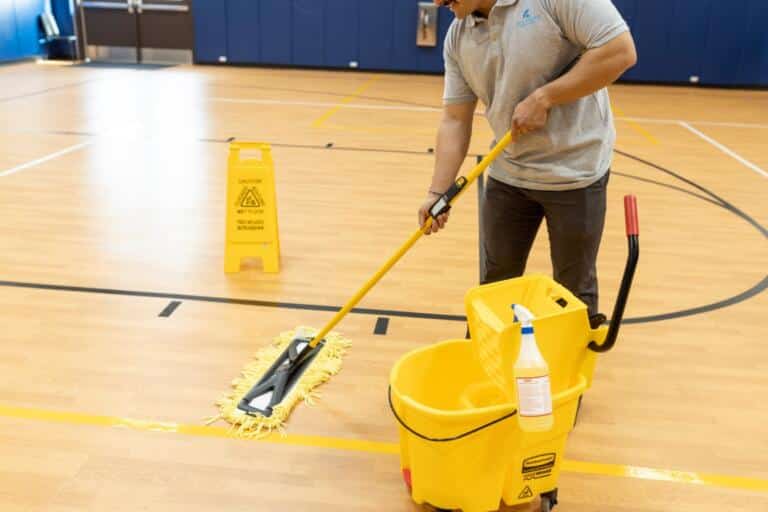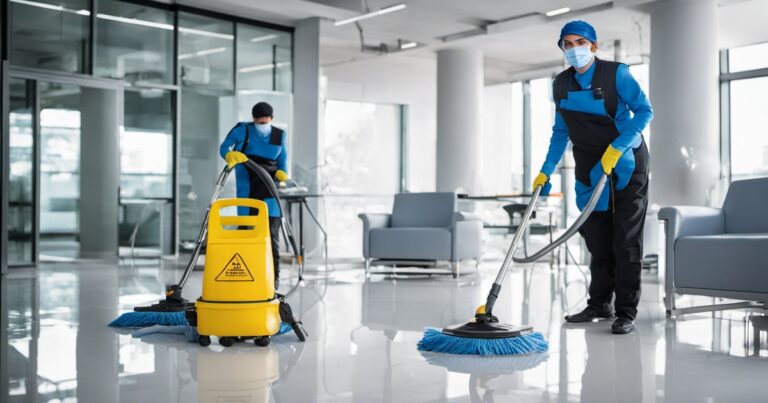Spring is a time of renewal and rejuvenation, and many people take this opportunity to engage in the age-old tradition of spring cleaning. Spring cleaning entails a deep cleaning of your home or office and includes tasks not typically done regularly.
These could include decluttering, reorganizing, and deep-cleaning carpets and upholstery. While spring cleaning may feel daunting at first, it is essential to remember that reducing allergens in the workplace can lead to increased productivity and better health outcomes for employees.
Allergens are substances that cause an allergic reaction in some individuals, such as dust mites, mould spores, pet dander, and pollen. Reducing allergens in the workplace can help prevent colds, reduce asthma symptoms, alleviate allergies, and improve overall air quality.
The Importance of Reducing Allergens in The Workplace
Reducing allergens in the workplace can have several benefits. It can help prevent illnesses such as colds and flu by keeping surfaces clean and free from germs. This is especially important when respiratory viruses are more prevalent during cold and flu season.
In addition to preventing illnesses caused by germs, reducing allergens can also benefit individuals with allergies or asthma. Allergic reactions occur when a person’s immune system overreacts to an otherwise harmless substance like pollen or pet dander.
Symptoms of allergies range from sneezing and coughing to more severe reactions like anaphylaxis. Taking steps to minimize allergen exposure in the workplace through regular cleaning practices like dusting or vacuuming carpets with HEPA filters or using natural cleaning products free from harsh chemicals can improve air quality within the office environment.
Furthermore, providing allergy-friendly workspaces can create a welcoming environment for employees who may suffer from allergy symptoms due to common allergens in the office. A workspace free from common allergens improves employee health and well-being, improving productivity and decreasing absenteeism.
Overall, reducing allergens in the workplace is a crucial step toward improving overall air quality and promoting employees’ health. In the following sections, we will delve into specific tips and steps to reduce allergen exposure in your workplace so you can enjoy a fresh start this spring season.
General Tips for Spring Cleaning
The Importance of Decluttering and Organizing Workspaces
Decluttering and organizing your workspace can improve your productivity, reduce stress, and make your workplace a healthier environment. When you have a lot of clutter, it can feel overwhelming and stressful.
It can also be an obstacle to finding important documents or tools quickly when needed. By taking the time to organize your workspace, you will not only reduce stress levels but also create a more efficient work environment.
Start by sorting through all of the items on your desk or workspace. Look at each item individually and decide if it’s necessary to keep it there or if it can be moved elsewhere or thrown away.
You’ll be surprised at how many things are lying around that are not being used at all. Next, design an organizational system that works for you.
Whether it’s file folders, baskets, trays or boxes – find what works best for your style and stick with it. Make sure everything has its place so that whenever something needs to be put back in its place, there is no confusion over where it goes.
Dusting and Vacuuming Regularly
Dust comprises tiny particles of skin cells, dirt, pollen, mould spores and other allergens that accumulate on surfaces in our homes or offices daily. Over time this dust builds up on surfaces such as desks, shelves, furniture etc., which makes cleaning more difficult as the dust becomes embedded in the surfaces. The solution?
Dust regularly! Use a microfiber cloth or duster to remove any dust buildup from surfaces such as shelves, desks/tables, etc. Using a vacuum cleaner with a HEPA filter will ensure that any dust particles are trapped inside the filter instead of being released back into the air where they could cause allergies.
Vacuuming regularly is essential to remove any dust or dirt that may have accumulated on carpets or rugs. This will make the carpet look cleaner and ensure that it is free from allergens.
Using Natural Cleaning Products
Natural cleaning products are an excellent alternative to traditional ones, often containing harsh chemicals and fragrances that cause allergies. Instead of using chemical-based cleaners, use natural alternatives such as vinegar, baking soda, lemon juice or essential oils for cleaning.
For example, vinegar is great for cleaning windows and mirrors; baking soda is excellent for scrubbing away stains in the bathroom. Using these natural ingredients makes your workplace a healthier environment and ensures that you are not inadvertently harming the environment with chemicals.
Taking the time to declutter and organize your workspace, dusting and vacuuming regularly, and using natural cleaning products during spring cleaning can help reduce allergens in your workplace. You can create a healthier work environment that promotes productivity and well-being by removing excess clutter, regular cleaning practices, and using natural alternatives.
Specific Steps to Reduce Allergens in the Workplace
Deep Cleaning Carpets and Upholstery
Carpet and upholstery can accumulate dust, pollen, and other allergens over time. Deep cleaning of these surfaces is essential in reducing allergens in your workplace. One option is to hire professional cleaners who can use powerful equipment to remove dirt and debris.
Alternatively, you can rent a carpet or steam cleaner for smaller jobs. When cleaning carpets and upholstery, use a hypoallergenic cleaner that won’t exacerbate allergies or asthma symptoms.
Cleaning Air Ducts and Vents
Air ducts and vents can also accumulate dust, pollen, pet dander, mould spores, and other allergens. This buildup can reduce indoor air quality and exacerbate allergies or asthma symptoms.
Hiring a professional duct cleaning service is recommended to clean your HVAC system’s ducts and vents thoroughly. If you prefer to do it yourself, you will need specialized tools like brushes and vacuums designed for this purpose.
Wiping Down Surfaces with Microfiber Cloths
Regularly wiping down surfaces with microfiber cloths is an effective way to reduce allergens in your workplace. Microfiber cloths have tiny fibres that can trap more dirt than traditional cotton cloths. They’re also better at picking up pet hair, dust mites, and pollen particles than other materials because they create static electricity as they move across surfaces, trapping the particles on the cloth instead of releasing them back into the air.
When using microfiber cloths to wipe down workspaces, ensure it’s dampened since dry wipes spread the particles around without removing them from surfaces completely. Another thing worth noting is that microfiber cloths should be washed regularly with hot water (above 140 degrees Fahrenheit) as this kills allergens and bacteria, keeping the cloths germ-free.
The Benefits of Using Air Purifiers
Air purifiers are becoming increasingly popular in workplaces today, and for a good reason. These devices help significantly reduce airborne allergens and pollutants in a room, making it a safer environment for all employees.
They work by drawing in polluted air and filtering it through a series of mechanisms that target specific pollutants. Here are some benefits of using air purifiers:
1. Reduces Allergens: Air purifiers can remove allergens such as dust mites, pollen, pet dander and mould spores from the air. This is especially beneficial for those with asthma or allergies.
2. Improves Respiratory Health: An air purifier can also improve respiratory health by removing tobacco smoke, bacteria and viruses. 3. Reduces Odors: Air purifiers can remove unpleasant odours such as cooking smells or cigarette smoke from the workplace.
4. Increases Productivity: Employees more comfortable in their surroundings tend to be more productive, which is another benefit of having an air purifier. 5. Saves Money: By reducing the amount of dust accumulating on surfaces, you may be able to prolong the life of office equipment such as computers and printers.
How to Properly Clean Your Computer Keyboard and Mouse
Did you know your computer keyboard and mouse could be home to millions of bacteria? With many people using these devices throughout the day, they must be cleaned regularly to prevent illness among staff members.
Here’s how: 1. Turn off your computer before cleaning
2. Unplug your keyboard and mouse 3. Use a soft-bristled brush or compressed air canister to remove debris between keys
4. Dip a cotton swab into rubbing alcohol and clean each key individually 5. Use an alcohol wipe or damp cloth to clean your mouse
The Importance of Changing Your HVAC Filters Regularly
HVAC filters play a crucial role in keeping the air clean and breathable. They trap dust, pollen, and other particles that would otherwise circulate in your air. Here are some reasons why it’s essential to change your HVAC filters regularly:
1. Reduces Energy Costs: When an HVAC filter becomes clogged with debris, it requires more energy to push air through it, resulting in higher energy bills. 2. Increases Lifespan of Equipment: A dirty filter can cause damage to your HVAC system, which means you’ll have to replace parts or even the entire system earlier than expected.
3. Improves Air Quality: A clean filter ensures that airborne pollutants such as dirt and allergens are kept out of the air you breathe. 4. Prevents Health Issues: Dirty filters can cause respiratory problems for those with allergies or asthma by allowing bacteria and mould to grow.
5. Saves Money on Repairs: Regular filter changes prevent the need for costly repairs due to damage caused by neglected maintenance. By implementing these niche subtopics into your spring cleaning regimen, you’ll help reduce allergens in your workplace, improve employee health and productivity, extend the life of office equipment, and save money on energy bills and repair costs – all while creating a more pleasant working environment for everyone involved!
Rarely Known Small Details on Reducing Allergens
The Effectiveness of Using HEPA Filters
HEPA stands for High-Efficiency Particulate Air, and these filters are known for their ability to trap small particles such as allergens. They are commonly used in air purifiers and vacuum cleaners, and they can be a helpful tool in reducing allergens in the workplace. HEPA filters force air through a fine mesh that traps tiny particles, preventing them from circulating back into the air.
They can capture particles as small as 0.3 microns, including common allergens like dust mites, pollen, and pet dander. For those with allergies or asthma, using a HEPA filter can make a noticeable difference in their symptoms.
When purchasing an air purifier or vacuum cleaner with a HEPA filter, it is essential to ensure the filter is installed correctly and maintained according to the manufacturer’s instructions. Over time, the filter will become clogged with trapped particles and must be replaced to maintain effectiveness.
The Role of Indoor Plants in Improving Air Quality
Indoor plants add aesthetic value to workplaces and have many benefits for improving air quality. Certain plants have been shown to remove common toxins such as formaldehyde and benzene from indoor air while increasing humidity levels. Plants absorb airborne contaminants through tiny openings on their leaves called stomata.
The contaminants are then broken down by microbes living on the plant roots or absorbed into the plant tissue, where they are rendered harmless. In addition to improving air quality by removing toxins, plants also produce oxygen through photosynthesis, which can help increase energy levels among employees while reducing stress levels.
How to Properly Store Cleaning Supplies
Storing cleaning supplies properly is an important consideration when reducing allergens in the workplace. Many cleaning products contain chemicals that can irritate allergies or asthma; even natural cleaning products can spoil if not stored properly. When storing cleaning products, keeping them in a cool, dry place away from direct sunlight is recommended.
It is also essential to keep them out of reach of children and pets to prevent accidental ingestion or exposure. Storing cleaning supplies in a separate cabinet or closet from other items can help prevent cross-contamination and reduce the risk of accidental exposure.
Conclusion
Reducing allergens in the workplace is an essential and worthwhile task. By implementing the tips and strategies outlined in this article, you can create a cleaner and healthier workspace for yourself and your colleagues.
Recap of Tips and Subtopics Covered
General Tips for Spring Cleaning
We started by discussing some general tips for spring cleaning that can help reduce allergens in the workplace. Decluttering workspaces, dusting regularly, and using natural cleaning products are all simple but effective steps that can make a big difference.
Specific Steps to Reduce Allergens in the Workplace
We then dove into some more specific steps you can take to reduce allergens in your workplace. Deep cleaning carpets and upholstery, cleaning air ducts and vents, and wiping down surfaces with microfiber cloths are all great ways to keep your workspace clean.
Niche Subtopics on Reducing Allergens
We explored some niche subtopics related to reducing allergens in the workplace. We discussed the benefits of using air purifiers, how to clean your computer keyboard and mouse properly, the importance of changing HVAC filters regularly, and rarely known small details like the effectiveness of HEPA filters or indoor plants’ role in indoor air quality.
Encouragement to Prioritize Reducing Allergens in the Workplace
Taking steps to reduce allergens in the workplace may seem like a daunting task at first. However, following and prioritizing these tips within your office culture will become second nature over time. Your health will thank you for it!

